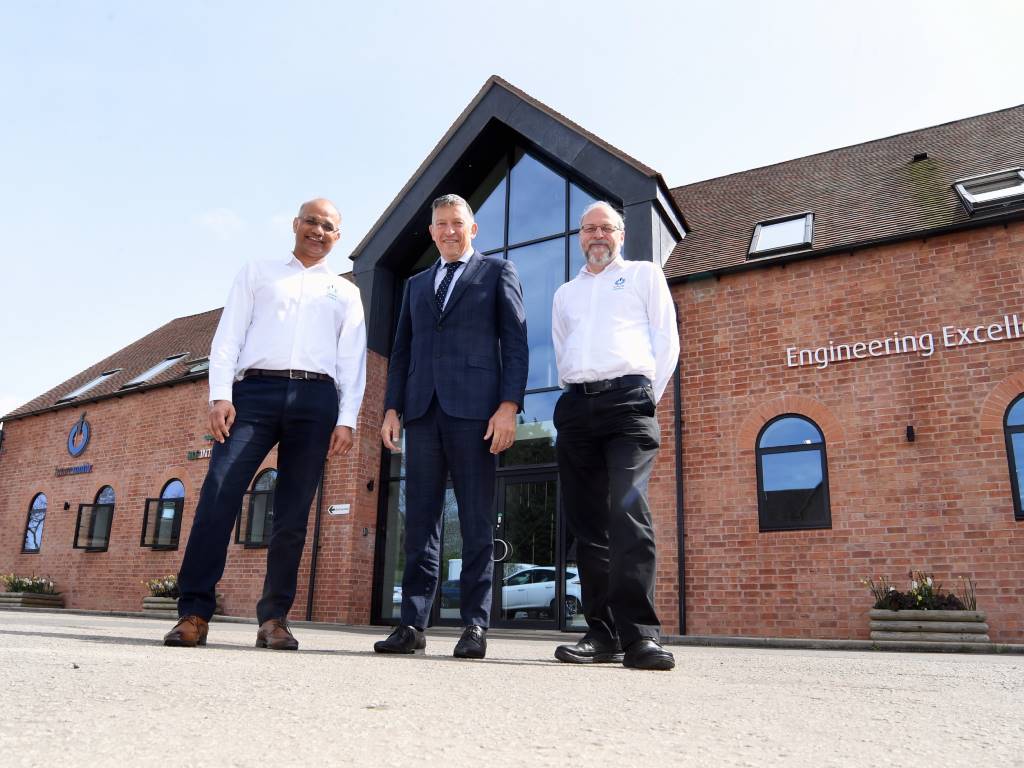Rock around the clock
To fulfil an exacting contract for the rail industry, Epsom subcontractor, W.E.C.S Precision (WECS), has invested in an Okuma MA600 HB horizontal machining centre.
To fulfil an exacting contract for the rail industry involving safety related modifications to electric drive motor casings and reduction gearbox housings, Epsom subcontractor, W.E.C.S Precision Limited (WECS), has invested in an Okuma MA600 HB horizontal machining centre. It was installed during 2009 by NCMT, sole agent for the Japanese machine manufacturer, and has worked around the clock ever since.
As is often the case, the main catalyst at WECS in this particular instance for the purchase of a new machine tool was the customer. The size of the motor and gearbox assemblies required a machine of capacity larger than the subcontractor previously had on the shop floor. Although a 500mm pallet would have been just sufficient to carry out the work, WECS opted for a 630mm pallet machine, as it sets the company apart from most of the competition in the south of England, according to managing director, Nigel Pooles.
The contract stipulated that each set of 32 motor and gearbox assemblies had to be modified in one week to minimise the period each train is out of service. To achieve such a fast turnaround, the machine was equipped with a six pallet pool to maximise cutting time by allowing offline workpiece fixturing and removal.
On a rolling weekly programme entailing 24/7 operation of the Okuma until mid-2011, two of the pallets are devoted to machining motors and two to gearboxes, which leaves two spare for other contracts – capacity that the subcontractor is actively selling.
The steel motor casing requires extensive reworking to mill lugs and drill through holes to tight tolerances so that each assembly mounts to a redesigned bogie frame using bolts that are secured with a nut rather than entering a threaded blind hole. Dimensional tolerances on the 14mm and 21mm diameter holes are +18µm and +21µm respectively and typical positional tolerances of the motor case and gear case are 25µm cumulatively.
Machining demands
What makes these limits so demanding to achieve is the need to use extended cutters to machine features a long distance from the spindle nose. For example, to machine the motor case lug faces, a 250mm diameter side and face cutter is mounted on a 470mm gauge line BT50 toolholder, utilising taper and face spindle contact.
To help to achieve the required component tolerances, a Renishaw OMP3 probe is employed to measure the lug faces after rough machining. The Okuma program software re-calculates the final tool path, ensuring that component tolerances are met. This machining method has shown the process to be capable of holding a tolerance of ±5µm around nominal size.
A further potential difficulty in holding the tight limits at the Epsom factory stems from the location of the machining centre, close to a roller door that opens and closes frequently. The Okuma MA600 is said to be less affected by temperature variation on the shopfloor than most machines, owing to the manufacturer's Thermo Friendly Concept.
Hold steady
Symmetrical design, combined with tool offset compensation using data sent by temperature sensors located around the spindle and main structural elements of the machine hold dimensional drift to below 10µm. This is the case even if the ambient temperature fluctuates by as much as 8°C.
As to his choice of machine to perform the rail industry contract, Mr Pooles comments: “We carried out the original research at MACH 2008 and narrowed the shortlist to five potential suppliers, visiting reference sites for all of them.
“We decided on the Okuma due to the tight limits we were being asked to hold, as this Japanese manufacturer has a reputation for building high accuracy machines. Moreover, its installed weight was the heaviest by far, which indicates robustness, accuracy and longevity. We saw a 15 year old machine at another subcontractor that was still routinely holding tight tolerances.”
Problem solved
On the sand cast aluminium gearbox casing, two bores of 255mm and 120mm diameter are machined to within 32µm and 25µm respectively. There used to be a problem deburring the interface between the machined bore circumferences and the casting, as the position of the interface is not known to better than ±2mm. It means that the mill cannot be programmed to remove the burrs consistently and it previously took an operator 10 minutes to finish each part by hand.
The job is now done in 90 seconds within the machining cycle by a Xebec deburring tool, also supplied by NCMT, resulting in significant labour and cost savings. The abrasive rods, each comprising 1,000 aluminium oxide fibre filaments, splay slightly to cover the entire interface area between the machined bores and the casting. The amount that the rods splay effectively covers the ±2mm positional inaccuracies of the casting, producing a uniform deburred profile.
Allistair Bowmar, lead engineer at WECS responsible for the rail project states: “The advantage of the Xebec system is that the whole of the filament is made of aluminium oxide. The self-sharpening rods last significantly longer than abrasive impregnated nylon brushes and surface finish can be controlled by a simple change to the tool length offset.”
When interviewed, three weeks after the new deburring method was adopted at Epsom, the first Xebec tool had still not worn out, despite it having processed over 100 gearboxes.
NCMT
www.ncmt.co.uk













